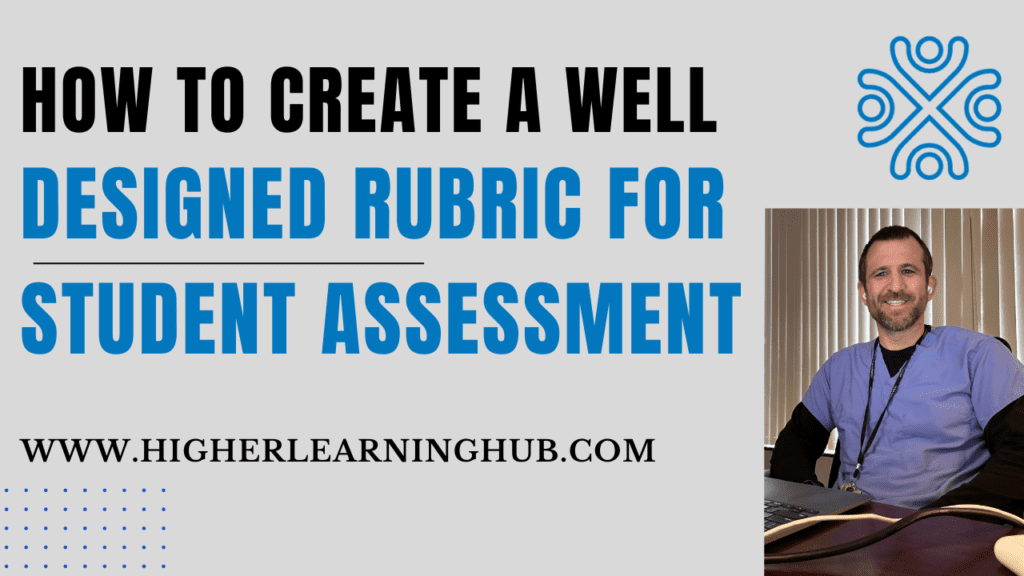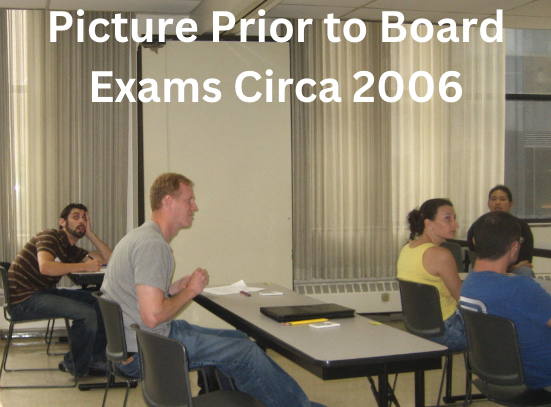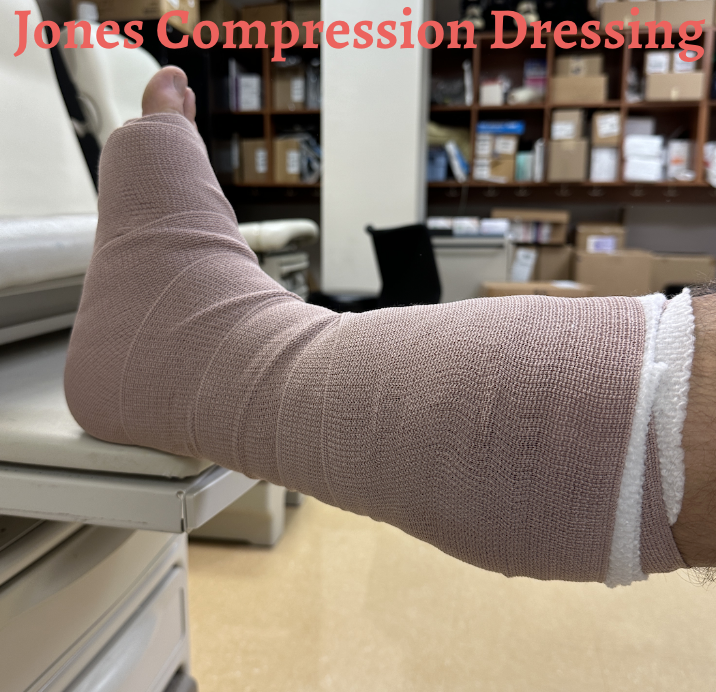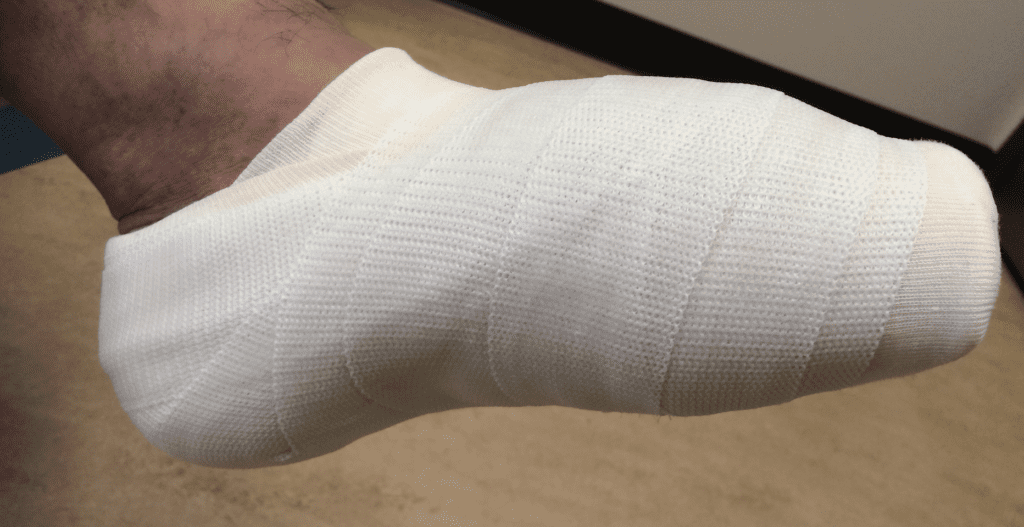Authored by Dr. Leland Jaffe; Associate Dean and Professor; Published on August 17th, 2024
Many students struggle with anxiety, poor study habits, and time management issues, which can undermine their exam performance. By understanding and implementing effective strategies, you can turn exams into opportunities rather than obstacles.
In this post, you’ll discover practical methods to boost your confidence, improve your study techniques, and face exams with a calm, prepared mindset. Whether you’re a college student preparing for finals or a graduate student gearing up for high-stakes exams, these insights will provide the edge you need.
Understanding the Psychology of Exam Anxiety
Exam anxiety can be a daunting challenge for many students. It’s not just about feeling nervous before a test; it’s a combination of emotions, physical responses, and mental hurdles that can significantly impact one’s performance. Understanding both the causes and effects of this anxiety can empower students to tackle exams with more confidence and less stress.
Causes of Exam Anxiety


Exam anxiety often originates from a variety of sources. Recognizing these causes can help in developing strategies to combat them effectively. Here are some common causes:
- Fear of Failure: Many students fear not meeting expectations, whether personal or imposed by others. This fear can create a cycle of worry and self-doubt. We often are our worst critics and place unrealistic expectations on ourselves.
- Lack of Preparation: Inadequate studying or poor time management (see blog post on time management strategies during exams) can lead to anxiety. If students feel unprepared, their stress levels can rise.
- High Stakes: Exams often come with significant consequences. Whether it’s a final grade or maintaining a scholarship, the pressure can become overwhelming.
Understanding these factors can help students identify and address the root causes of their anxiety. For further insights on what causes test anxiety, this article provides valuable information.
Effects of Anxiety on Test Performance
Here’s how anxiety can affect exam performance:
- Impaired Focus: Anxiety can make it difficult to concentrate on exam questions, leading to mistakes and misinterpretations of questions. Impaired focus can also lead to not reading questions carefully and making avoidable mistakes.
- Memory Recall: Stress can block access to stored information, making it challenging to remember facts and details during a test.
- Overall Performance: The pressure can lead to poor decision-making and hasty answers, affecting the overall test score.
Understanding the impact of test anxiety can equip students with tools to manage it effectively, enhancing their ability to succeed. By acknowledging and addressing these elements, students can transform exam anxiety from a challenge toward achieving greater confidence and success.
Mindfulness and Relaxation Techniques
Finding calmness and clarity during exams can seem daunting, yet it’s often a matter of mastering simple mindfulness and relaxation techniques. These practices aren’t just beneficial for the moment of the test; they cultivate long-term skills that enhance focus and reduce stress.
Breathing Exercises


Deep breathing is one of the most accessible ways to calm the mind and body. Picture it as a reset button; a few deliberate, deep breaths can dramatically reduce anxiety and sharpen your focus. When you’re nervous, shallow breaths can limit oxygen to your brain, causing more tension. By embracing deep breathing exercises, you can flood your system with the oxygen it craves.
Here’s how you can achieve it:
- Find a quiet spot and sit comfortably.
- Inhale deeply through your nose, allowing your diaphragm to expand.
- Hold your breath for a few seconds.
- Exhale slowly through your mouth.
Repeat this process for a few minutes. It’s simple but incredibly effective at diminishing stress. Resources like Northwestern University’s guide on test anxiety highlight how even five minutes can make a significant difference.
Visualization Techniques
Success in exams isn’t just about studying hard; it’s also about having self-confidence. Visualization techniques let you mentally rehearse success. Imagine yourself at the exam, confident, answering questions with ease. This mental practice not only boosts your mood but can greatly improve performance when it counts. I will often perform this technique before surgical cases to help me mentally prepare. By the time you sit for the exam, your mind is already accustomed to the success you can achieve.
Mindfulness Meditation
Mindfulness meditation is a transformative practice that can benefit your mental state immensely, particularly during stressful periods. By fostering a sense of awareness and presence, mindfulness practices help keep stress managable and sharpen your concentration.
Incorporating a brief session of mindfulness meditation into your daily routine can be a game-changer. Sit down, close your eyes, and simply observe your thoughts without judgment. With regular practice, this technique will teach your mind to remain anchored in the present, not fretting about past mishaps or future worries. Check out resources like Calm Classroom’s guide on mindfulness for test anxiety for more sessions and techniques. I have also found Yoga practice to help relax my mind and mentally prepare for the day ahead.
Exam Day Strategies
Exam day can be nerve-wracking, but with the right approach, you can face it with confidence and calmness. The following strategies will help you make the most out of your exam experience, ensuring you are well-prepared and mentally ready to tackle any challenge.
Developing a Morning Routine


Starting your day right is essential to set a positive tone (see blog post on how to build a morning routine). Consider developing a calming morning routine that includes activities like a short meditation session, yoga, and a nutritious breakfast. This will not only ground your mind but also energize your body, ensuring you are fully alert and ready for the exam.
- Meditation: Spend 5-10 minutes focusing on your breath to cultivate a sense of calm.
- Healthy Breakfast: Choose foods that provide sustained energy, such as whole grains and fruits.
- Stretching: Simple exercises can loosen up your muscles and help you feel more relaxed, reducing physical tension.
Arriving Early and Preparing Logistically
Timing is everything on exam day. Arriving early not only gives you a head start but also allows you to acclimate to the testing environment without the rush. Use this extra time to:
- Settle in and Relax: Familiarize yourself with the room and sharpen your focus.
- Check Materials: Double-check you’ve brought necessary items like pens, pencils, ID, and any allowed calculators or notes.
Being early also leaves room for any unforeseen issues like traffic or misplaced items. For further advice on logistical preparation, you might explore Harvard Summer School’s tips for test success.
Reading Instructions Carefully
It’s crucial to understand the exam format and instructions before diving into questions. Take a few moments to read through the instructions thoroughly. This step ensures that you are aware of any specific directions that could affect how you approach the exam.
- Understand Marking Schemes: Know which questions carry more weight and plan your time accordingly.
- Clarify Doubts: If anything in the instructions is unclear, do not hesitate to ask for clarification from the exam proctor.
By ensuring you’re clear on instructions, you avoid any unnecessary mistakes, boosting your confidence and performance. More insights on test-day strategies can be found at Intelligent’s exam tips.
These strategies will help you walk into your exams with a sense of preparedness and poise, making sure your hard work pays off.
Post-Exam Reflection
Reflecting on your exam performance is crucial for improving your future results. This reflection isn’t just about looking back; it’s about understanding your strengths and learning from mistakes. Post-exam reflection allows you to develop a growth mindset, building confidence by recognizing what you did well, and paving the way for targeted improvements. Let’s explore how you can transform those reflections into a powerful tool for success.
Analyzing Performance
By analyzing both the right and wrong answers, you can uncover patterns that reveal your strong suits and pinpoint areas where you need extra practice. Learning from incorrect answers can truly make a difference in the learning process. Don’t just take an exam and move on without learning from your mistakes. Start by asking yourself critical questions:
- Which types of questions did I consistently get right?
- Where did I make avoidable mistakes?
- Was I managing my time effectively during the exam?
These questions can guide you to insights about your performance. Regularly reviewing your performance doesn’t just highlight weaknesses; it strengthens your exam-taking strategy for future tests.
Setting Goals for Future Exams
Goal-setting after reflecting on an exam is like setting a roadmap for your success journey. To create effective goals, make them specific and measurable. For instance, if you identified time management as a challenge, aim to “complete practice sections within the allotted time” rather than a vague goal like “work faster.”
Consider using the SMART goals framework:
- Specific: Clearly define what you aim to improve.
- Measurable: Determine how you will measure progress.
- Achievable: Ensure your goal is within reach.
- Relevant: Align with your overall academic aims.
- Time-bound: Set a deadline to focus your efforts.
Reflecting on performance helps in setting realistic goals that are achievable and meaningful. For more strategies to improve your exam game, check out our blog on test-taking strategies.
By consistently practicing this process, you’re not just preparing for the next test—you’re building resilience and expertise that will benefit you in every exam you take.
Exam Tips For Building Confidence : Conclusion
Harnessing effective exam strategies transforms anxiety into confidence and performance. By focusing on organization, active learning, and mindfulness, you’ll become equipped to take exams with a clearer mind.
Start applying these strategies now. Notice the difference in your preparation and results.
Success begins with small, consistent steps. Share your experiences or tips in the comments.
Thank you for reading, and good luck on your exams this semester!







